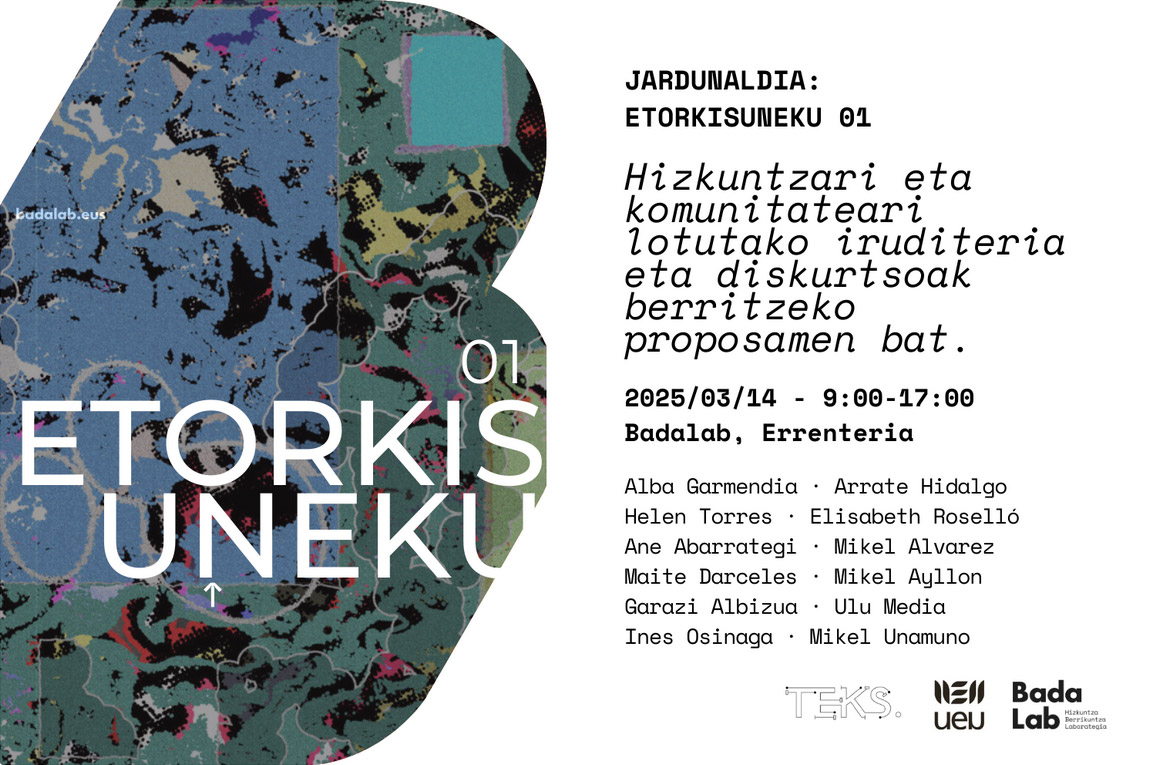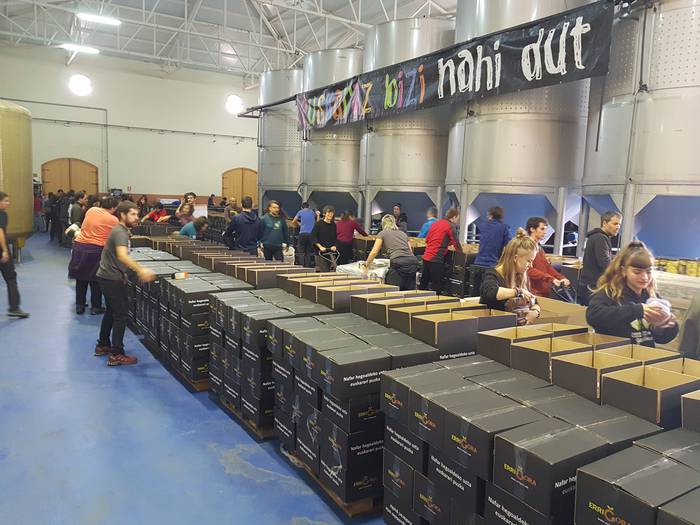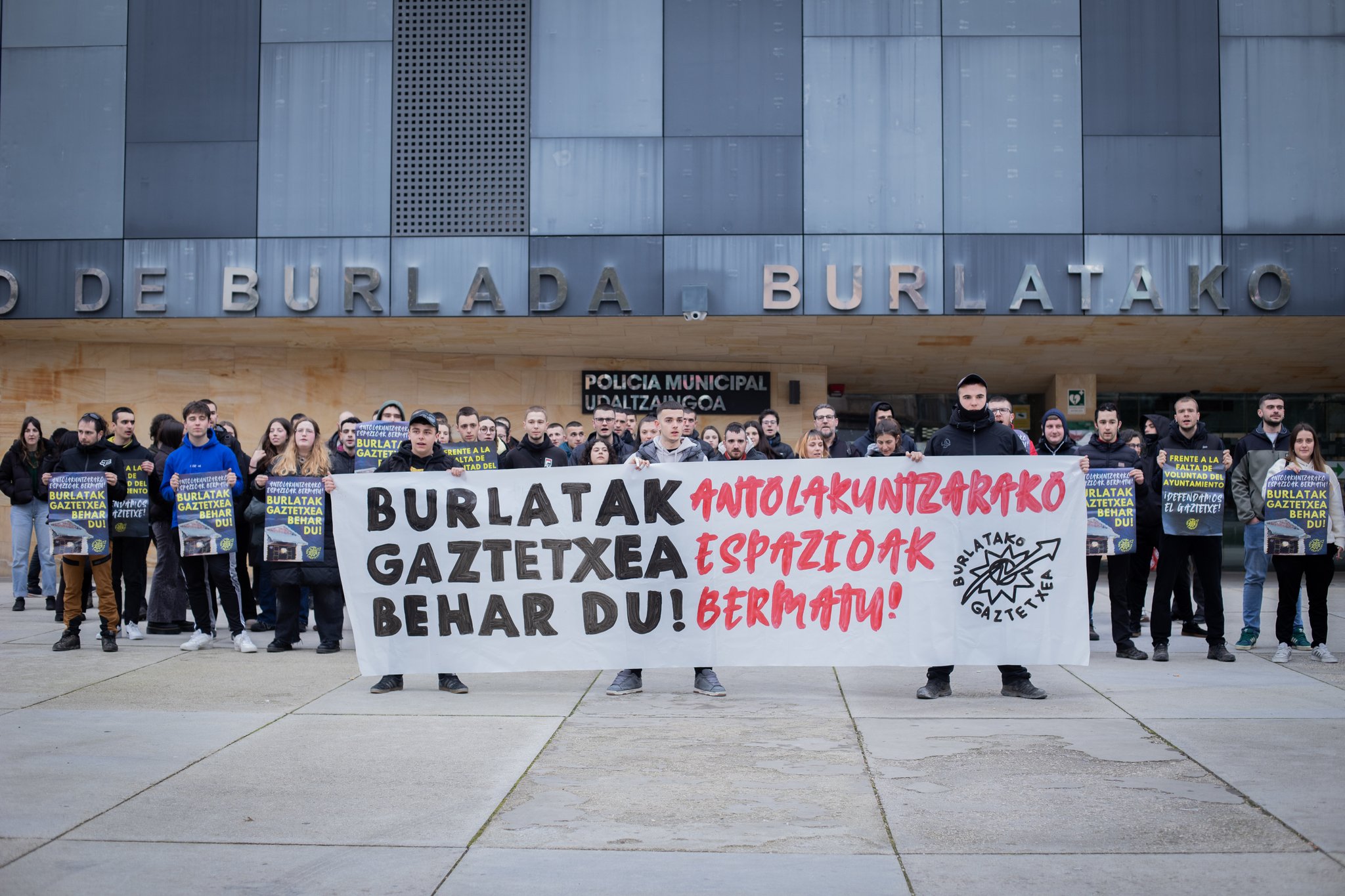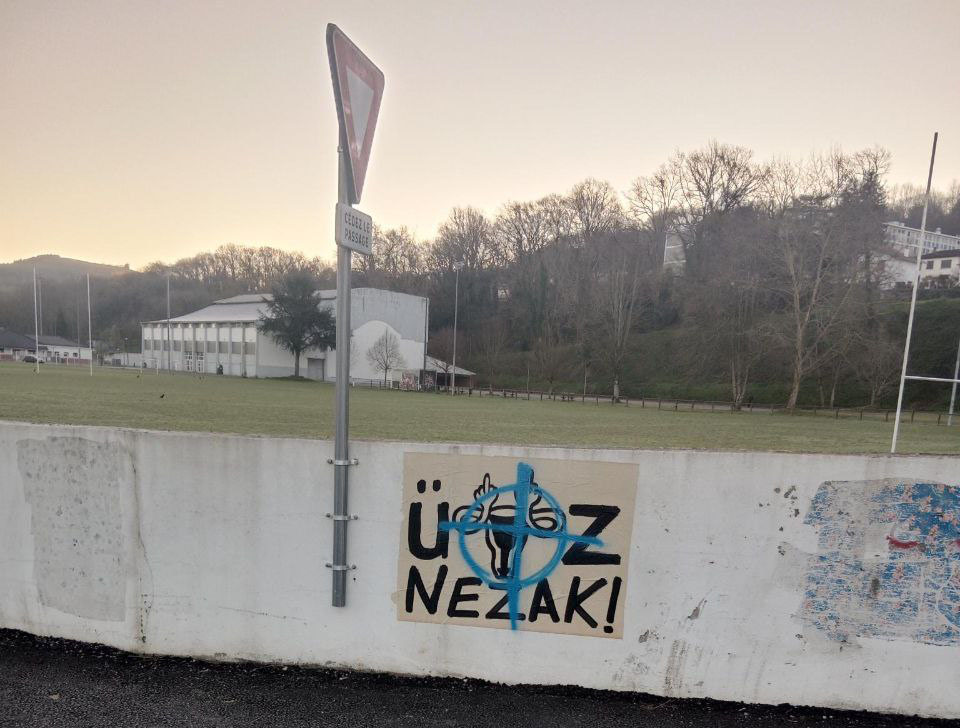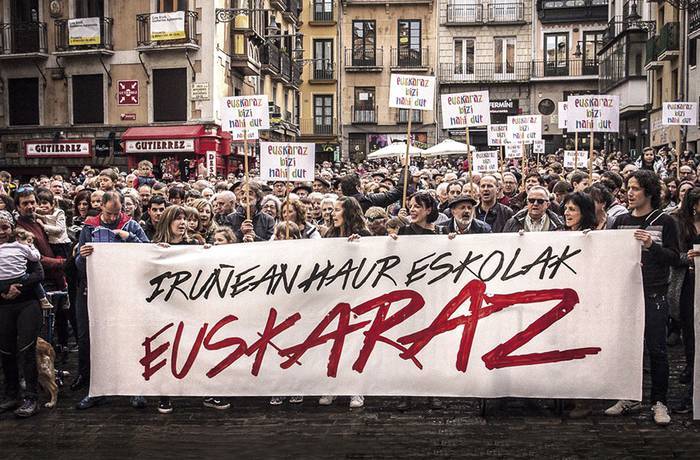"The creation of the Navarre ikastolas was really surprising: without books, without teachers..."
- In 1965, thanks to the courage of some parents, the Ikastola Uxue was founded in Pamplona, with twelve students. Following the initiative of the capital, ikastolas were created in different localities of Navarra: Etxarri Aranatz, Tafalla, Estella… The Pamplona journalist Fermin Erbiti has collected in the book Ametsa egia the testimonies and photographs of these 50 years. A tribute and a thank you to all the Euskaltzales who have been essential in the half-century journey.

Where did the idea of the book come from?
He went out into the street to organize the 50th anniversary events of the Navarre ikastolas. In the Association of Ikastolas de Navarra (NIE) a commission was created to organize all this, and it was considered appropriate to publish a book that reflected the half-century journey. I got the assignment and I said yes, because I have a subject that I really like. They allowed me to establish the content of the book, and that's also to be welcomed. In this sense, it is noteworthy that, in addition to the accounts of half a century, I have compiled some previous stories, as otherwise the movement of ikastolas is hardly understood: The work of Campion and other Euskaltzales of the 19th century and, above all, the Basque pre-war classes.
You've dedicated the first chapter of the book to those pioneers.
Yes. Campione made a great effort to strengthen the endangered Basque country through the College of Euskera of Navarra. Campion summed up his concern with one sentence: “We leave one and nobody comes.” Well, in the 1930s he knew about the creation of the Basque School of Pamplona and said: “Some of us leave, but others come.” In the years leading up to the war, some Euskaltzales saw it clear that the future of Euskera was played in school. That is why the Basque schools of Pamplona, Estella and Elizondo emerged. Unfortunately, all this ended on 18 July 1936. And luckily, 30 years later, other dreamers started working to create today's ikastolas.
You've worked a lot. What steps have you taken and what means have you used to contact creators?
On the one hand, I have looked at the documentation. What about the ikastolas, what about the Basque schools before the war… Then, I visited all the ikastolas to meet with those who know each other well: creators, teachers, current leaders… These testimonies have been fundamental. “Wherever you like, there are no verses,” the saying goes. Well, in the last few months I've been like this: busy, because I had to make a book besides the regular work, but happy, very interesting and enriching. It is a desire to make known the history of the ikastolas and, above all, the stories of the ikastolas.
The times when the movement was gestated were not easy, and those people would not be easy either...
The creation of most of the ikastolas was really surprising: without books, without qualified teachers, without legalizing… Deficiencies in all senses. And they did them in very curious places: in a cowboy, in an old chickens, in the Champignonero, in a dark corner of the old town convent… It was a very epic time. Seen from today’s watchtower, it can be even fun. For those who lived it was quite hard. This shows the strength and illusion of those Euskaltzales.
Any examples of that hardness?
In some villages the authorities, the school teachers and many people in the town attacked the ikastola implacably and, in many cases, very dirty. Especially in Tudela, Viana and Lumbier.
In your speeches you frequently speak of that passage of Jesus Atxa.
In these 50 years, the Navarre ikastolas have travelled an abrupt path, with the wind always against, and not only in the darkness of Franco, also later. Jesús Atxa, the driver of the ikastolas here, summed up the Manuel Lekuona Prize with his ex-lehendakari Sanz at his side: “In Navarre several highways have been made in recent years so that by taking the car we can go more comfortable. The Basques, on the other hand, must continue along the narrow and laborious paths of always. When are the highways?”
What stages would you differentiate in this 50-year-old story?
Most ikastolas emerged in the 1970s. The next time legalizations came, and in the 1990s, decent schools began to be built. This may be the clearest summary.
Would you say that ikastolas have the same character as in the beginning?
The main features of the ikastolas are, in my opinion, three: the defence of the Basque Country and the Basque culture, the commitment to innovative pedagogy and the participation of parents. It is true that society has changed a lot in the last five decades, but those characteristics are very present in the ikastolas.
As for the future, what do you think?
Ikastolas have shown that they offer high quality teaching. The above characteristics are maintained and quality is still considered as the main compass. I think that is going to guarantee the future of the ikastolas.
“Historiak jaso eta kontatzea, ahalik eta txukunen. Horixe da batxilergoa amaiturik aukeratu nuen profesioaren muina. Guk profesioa aukeratu, bai, baina mentura itsuak sekula pentsatu gabeko bideetan barna eramaten gaitu. Zenbakiak gorroto zituen gaztetxo hark auditoria-txostenekin lan eginen zuela jakin izan balu! Eskerrak goizeko zenbaki-saltsaz gain badela besterik, desorduetan bada ere: irakurgai gozoagoak, historia interesgarriagoak. Ikastolenak, esate baterako”.
"No entiendo, en castellano por favor" eta gisakoak ohikoak dira eskolako guraso Whatsapp taldeetan, baina Irungo Txingudi ikastola publikoan euskara hutsean aritzeko modu erraz eta eraginkorra aurkitu dute, behar duenarentzat itzulpen sistema berehalakoa ahalbidetuta.
Etorkisuneku 01 izenarekin jardunaldia egingo da martxoaren 14an, datorren ostiralean, Errenterian. Badalabek eta TEKS elkarteak antolatuta "hizkuntzari eta komunitateari lotutako iruditeria eta diskurtsoak berritzeko proposamen bat" izango omen da. Badalaben egoitzan... [+]
Martxoaren 10etik 26ra izango da udaberriko kanpaina. 'Beste modura, denona de onura' lelopean arituko dira gertuko ekoizpena, banaketa eta kontsumoa babestu eta sustatzeko, ager zonaldean euskara hauspotzen duten bitartean. Apirila amaieratik aurrera jasoko dira... [+]
Iruñerrian bat egin dute hainbat Gazte Asanbladak, Burlatako Gaztetxearen alde. Etxarriren desalojoa gelditzera deitzeko, bestalde, manifestazio bat antolatu dute Bilbon hilaren 28rako.
Ez dakit nondik hasi, egia esan. Ordezkoa naizen heinean –irakaskuntzan ikasturte gutxi batzuk daramatzat lanean– eskola ugari ezagutu ditut Nafarroa, Bizkai eta Araban zehar. Lankide izan ditudan irakasleekin euskal eskolak dituen gabezien inguruan hitz egiten... [+]
Alberto Martinez Eusko Jaurlaritzako Osasun sailburuak argi dio: ez ditu mediku euskaldunak aurkitzen, eta euskarazko osasun arreta ezin da bermatu mediku egoiliar (formazioan dauden espezialista) gehienak kanpotarrak direlako. Mediku euskaldunak bilatzea perretxikotan joatea... [+]
35 film aurkeztu dira lehiaketara eta zortzi aukeratu dituzte ikusgai egoteko Euskal Herriko 51 udalerritan. Euskarazko lanak egiten dituzten sortzaileak eta haiek ekoitzitako film laburrak ezagutaraztea da helburua. Taupa mugimenduak antolatzen du ekimena.
“Gogo eta gorputzaren zilbor-hesteak: bi kate. Bi kate, biak ebaki beharrezkoak: bat gorputzaren bizitzeko, bestea gogoaren askatzeko”. Hala dio Mikel Laboaren kantak; hala izan da belaunaldiz belaunaldi, egun arte.
Gogoan dut nire gurasoak askotan joaten zirela... [+]
Plataformak "atzerapausotzat" hartu du Eusko Jaurlaritzako Etxebizitza eta Hiri agendako sailburu Denis Itxasok berriki iragarri izana lurzoru urbanizagarrietako etxe babestuen proportzioa %75etik %60ra jaistea. Pradales agintera iritsi zenetik alokairu soziala eskatzen... [+]
Martxoak 8an egindako pintaketak gainetik margotu dituzte ikur faxistekin Zuberoako hiriburuan. Horren aurrean elkarretaratzera deitu dute, astelehenean.
Euskarazko eskaintza handitzeko akordioa erdietsi dute EH Bilduk, PSNk, Geroa Baik eta Zurekin Nafarroak
Behe bandako zutabea bezain erlojuaren aurka prestatzen ditut mozorroak, korrika, aztoratuta, zalantzaz, erretxin, estropezuka eta sarri arrakasta ez erabatekoarekin; adibidez, zutabe hau eta biharko mozorroa. Oraindik ez dakit bietako zein bukatuko dudan lehenago. Baina... [+]
Berlinen martxoaren 8an izandako manifestazioa gogorki erreprimitu du Poliziak. Palestinaren aldeko aldarriak zeramatzaten manifestariek. Agintariek Alemanian arabierazko abestiak eta diskurtsoak debekatu dituzte manifestazioetan, "segurtasun publikoko" arrazoiak direla... [+]












